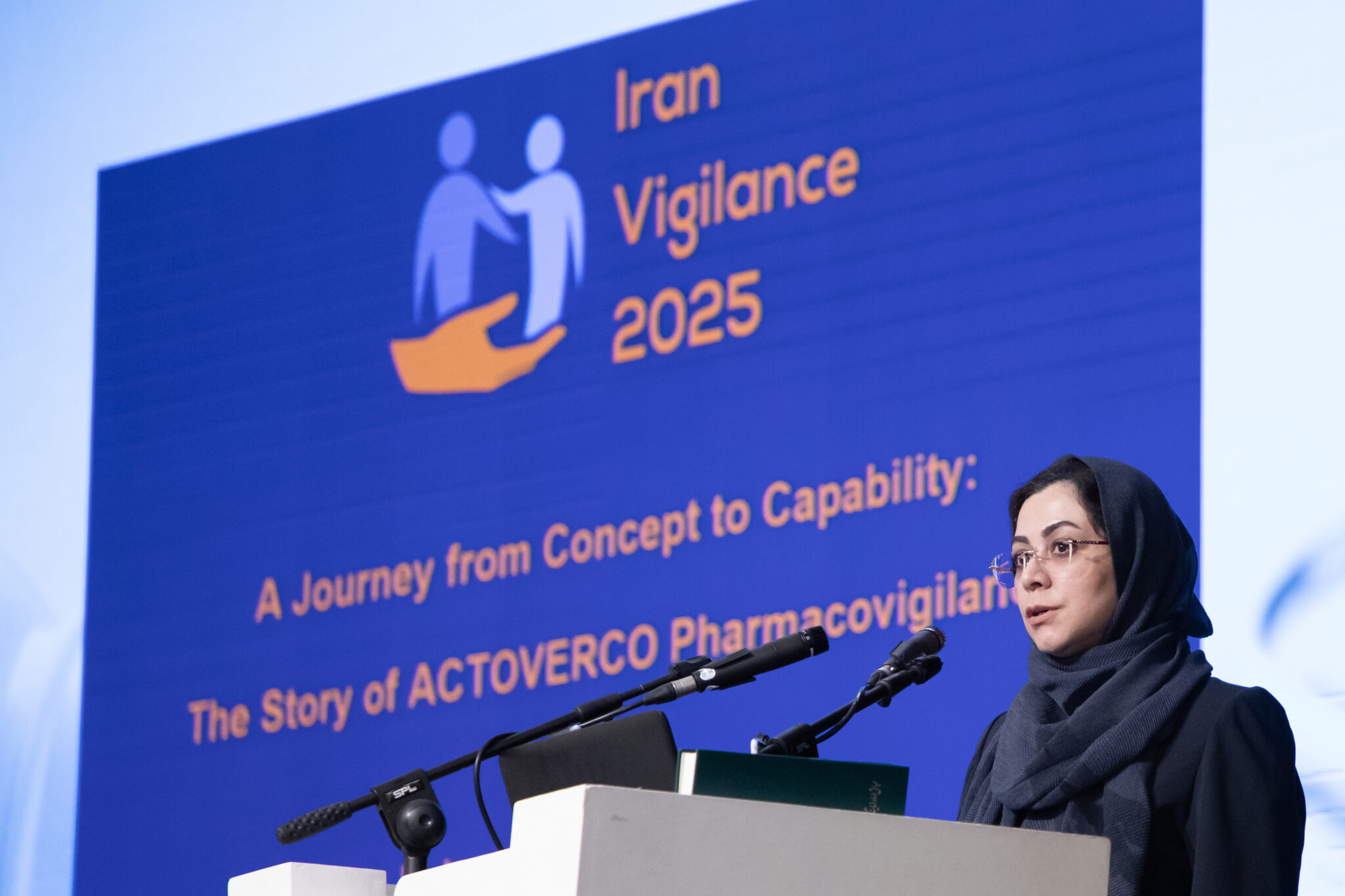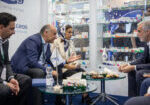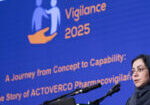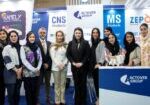Actoverco Medical Director Stated: A Strong Commitment to the “Pharmacovigilance” System Ensures the Safety and Reliability of Actover Products

The first National Conference on “Health Product Vigilance” was held on the occasion of World Patient Safety Day by the Deputy for Food and Drug of Iran University of Medical Sciences and the Food and Drug Administration, with the support of Actover Pharmaceutical Group.
According to the Public Relations Department of Actover Group, the conference aimed to enhance monitoring and safety systems in the fields of medicine, medical devices, food and beverages, and other health-related products, while also creating a platform for the exchange of knowledge, experiences, and the latest scientific achievements related to health product vigilance. The event was attended by professors, experts, practitioners, producers, as well as representatives of regulatory bodies and research centers, and was held on September 16–17 at the Shahid Rajaei Heart Hotel Conference Hall.
The main topics of the conference included: pharmacovigilance and patient safety, the role of pharmacovigilance in rational prescription and use of medicines, vigilance for blood products and vaccines, vigilance for organ-based products, vigilance for natural, traditional, and supplementary products, vigilance for cosmetics and hygiene products, vigilance for medical equipment and supplies, and vigilance for pharmaceutical necessities.
Dr. Mehdi Pirsalehi, Deputy Minister and Head of the Food and Drug Administration, emphasized the vital mission of the organization in announcing and monitoring health products. He stated:
“Strict oversight of products from production to consumption allows for the rapid identification of potential side effects and can prevent health disasters.”
He added that the missing link between pre-market and post-market surveillance is effective and continuous reporting of adverse events:
“Unfortunately, many doctors and users, despite concerns about side effects of drugs or devices, do not submit formal reports. Without this data, timely decisions cannot be made, and we are forced to act only after problems occur.”
Dr. Pirsalehi stressed that reporting should become a social concern and a shared responsibility:
“Doctors, nurses, and even patients must report any unusual adverse effects or issues. The consolidated data helps the FDA take corrective actions such as product recalls, label revisions, or updates to treatment protocols in a timely manner.”
He further underlined the importance of public trust in health promotion:
“When people are confident that a regulatory body is continuously monitoring product quality, trust in the health system grows—strengthening domestic production and even facilitating exports.”
He concluded:
“Utilizing data and reports not only improves safety and service quality but also aligns Iranian products with international standards and organizations.”
During the conference, Dr. Baharak Mahdipoor, Medical Director of Actoverco, presented the history of the company’s pharmacovigilance unit, its progress, and achievements over more than a decade of activity.
She highlighted the special importance of vigilance in Actover Group, which is active in the production, import, and export of pharmaceuticals. She noted:
“The company began in 1969 with pharmaceutical import activities, and its first manufacturing plant was established in 2011. The pharmacovigilance unit was launched in 2013 to enhance product quality and safety and to meet international collaboration requirements in pharmaceutical production.”
Mahdipoor explained that the pharmacovigilance unit operates under the company’s medical department:
“Given the company’s international contracts, the unit underwent its first audit and accreditation by Merck in 2014, and since then has been inspected eight times by foreign partners.”
She stressed that raising awareness and promoting a safety culture within the organization have been central goals:
“Within two and a half years, we managed to train all staff—both factory and headquarters employees. New colleagues receive training within their first two months, and annual retraining with testing is also carried out.”
Regarding outcomes, she noted:
“As a result of these efforts, the number of reports and suggestions has increased. We have not only resolved reported issues but also prevented potential errors. Our effective collaboration with other departments, including Regulatory Affairs, has strengthened public trust in our products.”
Mahdipoor also announced the establishment of a patient support unit with a dedicated communication line for doctors and patients:
“This enables consumers to easily discuss their issues with specialist physicians, which has enhanced patient confidence and increased willingness to use Actover medications.”
She further emphasized the ongoing updating of product safety data, based on reports from medical advisors, marketing colleagues, and product modifications:
“One of our pharmacovigilance strategies is proactive planning to minimize drug errors and adverse events. We don’t just wait for reports—we actively investigate conditions to prevent future problems.”
She cited examples of preventive measures:
“In response to a report about the risk of dosing errors due to similar packaging, we changed the box color of a drug. Other actions included redesigning packaging, replacing needle brands, developing proposals and checklists for naming oversight of new products, and revising leaflets to reduce errors in drugs with similar names or appearances (LASA: Look-Alike, Sound-Alike).”





